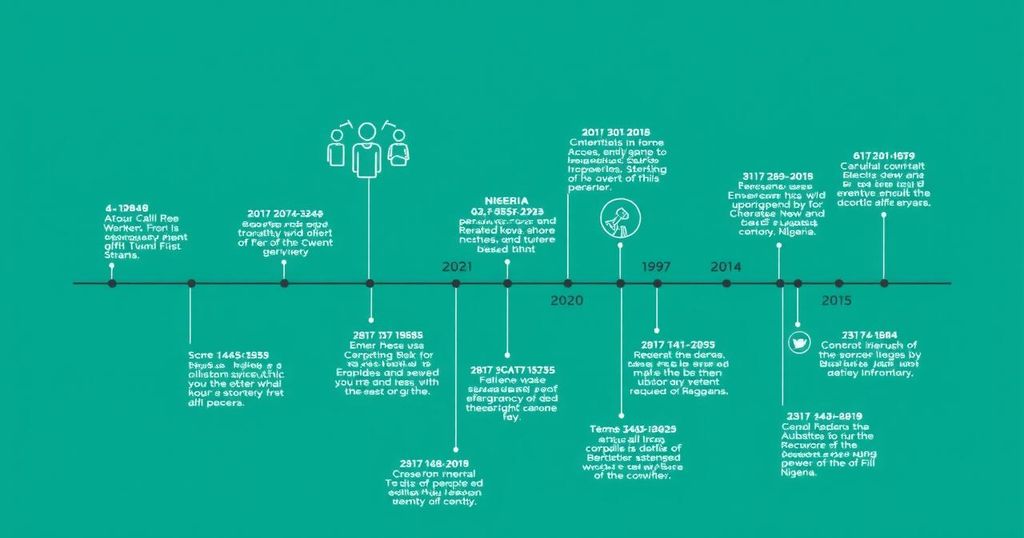President Bola Tinubu declared a state of emergency in Rivers State on March 18, 2025, suspending key officials for six months. This action adds to the timeline of such declarations in Nigeria, which began in 1999 and includes significant instances in Plateau, Ekiti, Borno, Yobe, and Adamawa States due to various crises, including violence and political instability.
The recent declaration of a state of emergency in Rivers State by President Bola Tinubu, effective March 18, 2025, marks the latest instance of emergency rule in Nigeria since it returned to civilian governance in 1999. President Tinubu’s decision suspends Governor Siminalayi Fubara, Deputy Governor Ngozi Odu, and the elected members of the House of Assembly for an initial period of six months, citing constitutional provisions as the basis for this declaration.
Throughout Nigeria’s history of civilian rule, several states have experienced emergency measures due to crises. President Olusegun Obasanjo declared a state of emergency in Plateau State on May 18, 2004, responding to severe ethno-religious violence that resulted in over 2,000 fatalities. In this instance, Governor Joshua Dariye and the State Assembly were suspended while Major General Chris Alli was appointed as an administrator.
In 2006, a political crisis in Ekiti State led President Obasanjo to impose emergency rule following the controversial impeachment of Governor Ayo Fayose. The unrest led to governance issues, prompting the appointment of Brigadier General Adetunji Olurin as administrator.
On December 31, 2011, President Goodluck Jonathan enacted emergency measures in select local government areas in Borno and Plateau States amid escalating violence and the rise of Boko Haram. This trend continued as Jonathan declared emergency rule in Borno, Yobe, and Adamawa States from 2013 to 2014 due to the serious threats posed by Boko Haram, including notorious abductions and attacks.
The most recent emergency declaration in Rivers State was triggered by escalating political tensions and confrontations between Governor Fubara and the House of Assembly. President Tinubu announced the suspension of local leadership, while appointing Vice Admiral Ibokette Ibas as the administrator to manage state affairs during the emergency period.
The timeline of emergency declarations in Nigeria demonstrates a pattern of governmental response to crises, whether political, social, or security-related. The recent declaration in Rivers State reflects ongoing challenges within the political framework of Nigeria, emphasizing the continuing need for effective governance and stability. Such measures have often resulted in suspensions of elected officials and increased direct control by federal authorities, illustrating the complexities of administering emergency rule in a democratic context.
Original Source: tribuneonlineng.com






